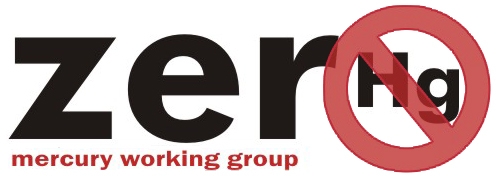Highlights 2005 – 2012
EC proposal restricting mercury in certain measuring and control devices
This proposal is following Action 7 of EU Strategy on Mercury
Action 7. The Commission intends to propose in 2005 an amendment to Directive 76/769/EEC13 to restrict the marketing for consumer use and healthcare of nonelectrical or electronic measuring and control equipment containing mercury.
The NGO activities and developments on the issue are presented below in chronological order:
As a follow up of the Commission proposed actions in the EU Strategy on Mercury, and related to action 7, the Commission (DG Enterprise) sent to the NGOs on the 13th May 2005,a working document for the preparation of a proposal for a directive relating to restrictions on the marketing of certain measuring devices containing mercury.
The work followed the co-decision process where EEB with support from other NGOs submitted comments and issued press releases from May 2005 until the publication of the directive on 2 October 2007 in the Official Journal of the European Union as Directive 2007/51/EC, at http://eur-lex.europa.eu/LexUriServ/LexUriServ.do?uri=OJ:L:2007:257:0013:01:EN:HTML.
On June 19th, 2006 the EEB organised a conference "EU Mercury surplus management and mercury-use restrictions in measuring and control equipment”, in Brussels. The conference was attended by around 60 persons mainly representing different EU governments, as well as industry and environmental and health NGOs. The report from the conference can be found here.
Towards restrictions in professional uses and in healthcare
The EC started collecting information mainly on the technical aspects of availability and reliability of Hg-free sphygmos in healthcare, the collection is on-going until end of summer 2008, in view of extending the bans. The NGOs followed developments until 2012 when a relevant amendment was adopted under the EU Chemicals regulation REACH.
To give input to this debate, further to the submitted comments in September 2008, the EEB/ZMWG together with HCWH Europe organized a conference “EU Mercury phase out in measuring and control equipment”, on the 18 June 2009, in Brussels. Around 50 persons attended the conference from different EC Directorate Generals (Environment, Industry , Consumer and Health), as well as EU Governments, Medical doctors and experts in validation and calibration issues, recyclers, manufacturers of measuring devices, trade unions and NGOs. The debate was very lively, with good/expert input from the panel and also from the participants. Technical issues on calibration and validation were clarified and the issue was also approached from a clinical view, where it became clear that problems in diagnosis of patients’ blood pressure could also depend on doctor’s experience, and not necessarily on the device itself. Very positive feedback was received from speakers and the EC. The new EEB commissioned study ‘Turning up the pressure Phasing out mercury sphygmomanometers for professional uses’ was presented and input was provided to the EU debate. The conference report is available here.
The conference showed evidence from medical and technical experts, NGOs, hospital representatives and Member states representatives that the transition to mercury-free sphygmomanometer use in clinical diagnosis and monitoring is fully possible. Even when it comes to issues of accuracy, reliability, calibration and use of mercury-free sphygmomanometers on special medical conditions such as arrhythmias and pre-eclampsia.
In October 2009, Scientific Committee on Emerging and Newly Identified Health Risks (SCENIHR) published their Opinion on: Mercury Sphygmomanometers in Healthcare and the Feasibility of Alternatives . Adopted by the SCENIHR during the 4th plenary meeting of 23 September 2009. Their opinion is along the line of the one NGOs had been expressing - that mercury sphygmomanometers are not needed for normal healthcare practice, nor special cases (hypertension, pre-eclampsia etc) or for calibration purposes. They may only be needed for validation of spygmomanometers is specialised centers and long term epidemiological studies.

